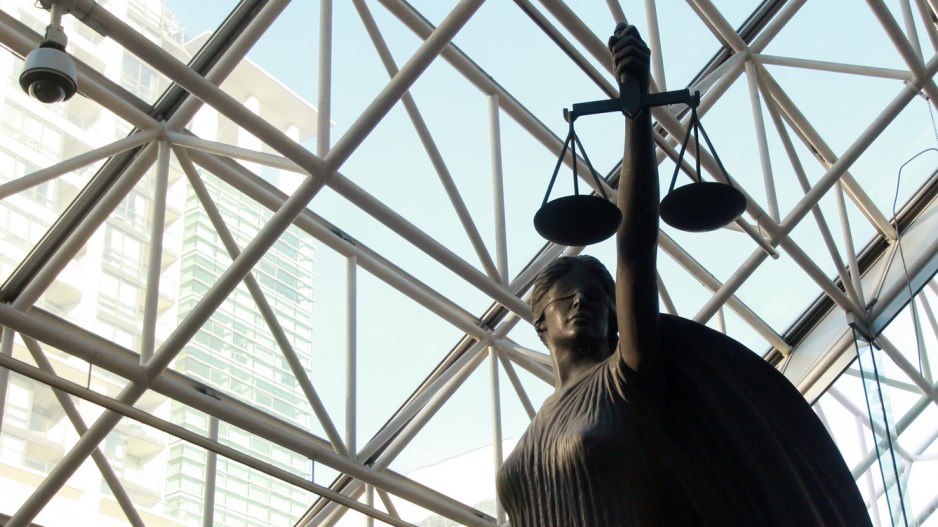The judge presiding over the high-profile Meng Wanzhou extradition case will set a date to announce her decision in October, the court announced this afternoon.
Associate chief justice Heather Holmes has set Oct. 21 for a case management hearing to announce the date for her decision on both the defence argument of abuse-of-process and the overall choice of whether the Huawei Technologies CFO will be extradite to the United States or not.
Holmes' announcement followed the formal conclusion of both Crown and defence arguments in the final committal phase of the hearing. Today saw both Crown attorney Robert Frater wrap up his counter-arguments (following three days of defence arguments) and a rare instance where the defence was allowed to counter the Crown's own counter-argument presentations.
The unusual step allowed by Holmes did not escape comment by Frater to wrap today's hearings.
"No one has received a fairer extradition hearing than Ms. Meng, even to the point of getting the last word," Frater said in closing.
The Crown prosecutor wrapped up his case in summarizing the U.S. allegations of fraud against Meng, noting that there is plenty of evidence proving the Chinese tech executive intentionally deceived HSBC on Huawei's business dealings in Iran in order to keeping the bank's services - which is enough to establish the fraud charges against Meng.
"It is enough that the bank is induced to act to its detriment by the defendant's conduct," Frater said. "Giving up your money when you may have otherwise chosen not to is a detriment... My friend [the defence] seems to want a direct causation relationship that directly ties something that was said in the PowerPoint to a particular loan made. The consequences of accepting such a submission is to upending the 'encouraging honesty in commercial dealings' goal of having a fraud offence.
"You have to give someone the information for someone to avoid the risk," he added.
Earlier today, the Crown began its final counter-arguments in the Meng extradition case with Frater refuting the defence’s argument that the United States did not provide enough evidence for a fraud charge against the Huawei CFO.
Meng’s defence focused its attention in the past three days of arguments on the U.S. charge of fraud against the Chinese tech executive, saying the claim that Meng’s PowerPoint presentation to HSBC in 2013 did not play any role in the bank potentially opening up its own liability to violating U.S. sanctions against Iran.
Frater, however, said the defence’s position assumes a “false inference” on the 2013 meeting – that HSBC was simply hoping to talk to Meng about potential damage to the bank’s reputation based on two Reuters articles outlining Huawei’s business in Iran – when the evidence is clear that HSBC sought much more than that.
“HSBC is a bank,” Frater said. “... What information it needed was if something was legal or illegal.”
According to Frater, HSBC records show a long-term policy of prohibiting banking with clients who do business in Iran, because officials were well aware of the possibility of incurring penalties from Washington for violating sanctions.
If that’s the case, Frater argued, the HSBC official meeting with Ms. Meng is almost guaranteed to be tasked with finding out exactly that – whether Huawei’s subsidiary, Skycom, was selling embargoed U.S. telecom equipment in Iran, and whether the two companies are linked.
“My friends [the defence] said Ms. Meng was truthful at the 2013 meeting with HSBC,” Frater said. “We say it wasn’t ‘the whole truth and nothing but the truth’... that Huawei owned Skycom through Canicula Holdings.”
Defence lawyers say that Huawei and Skycom were separate legal entities since 2007, when Huawei sold Skycom to Canicula. The Crown says the ownership structure doesn’t change the fact that Canicula was owned by Huawei employees and officials, meaning all three entities essentially answered to Huawei and Meng.
“The fact that the 2013 meeting did not have a narrow focus of reputational risk... underscores the necessity of candour from Ms. Meng, because it was important for HSBC to make its decision [whether to continue to provide loans to Huawei],” Frater said. “... Whether the victim should have avoided the fraud does not matter. The disclosure [from Meng] should be sufficient to allow the victim to make an informed decision to protect themselves. The victim must be given the chance to act differently.”
Frater also questioned whether Meng, as the CFO of a major global corporation, would really be oblivious to how HSBC cleared banking transactions from Iran through the U.S. financial system.
In the rare opportunity where Meng's defence was offered a chance to counter Frater's arguments, Meng lawyers Frank Addario and Mark Sandler took turns digging into the Crown arguments.
"If there is anything that is crystal clear in fraud jurisprudence, it is that an element of the offence - incorporated through causation, inducement, reliance... that the prosecution must establish is that not only the victim might have acted differently, but that the victim would have acted differently but for the misrepresentation," Sandler said, emphasizing that the Crown has not proved that exact causal link between Meng's PowerPoint and HSBC's eventual decisions to clear transactions involving Iran through the U.S. financial system."
If Holmes decides to announce her decision after Dec. 1, it would mark a full three years between Meng's arrest and the announcement of the final extradition committal decision.




